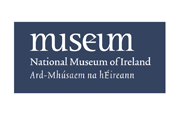The Matchmaker
Oughterard Newsletter October 2012
By Michael O'Connor
For centuries the matchmaker was the best known individual in the country. His job took him to every nook and cranny, through many parishes and across many county boundaries, as he etched out a living, trying to bring happiness and good fortune to many people who depended on him to help them to find their ideal partner in life. It was a tough job being a matchmaker, trying to please so many people. A good sense of humour was an important ingredient and the gift of the gab as well. These were important to the matchmaker, as he had to have an answer at the ready on all occasions. Having knowledge of families and their backgrounds was very important too. So he spent many hours, of many days travelling around the villages from one end of the county to the other. After many such trips, he was well known and trusted by everyone. People were delighted to have a matchmaker in their midst as for far too long they had no means of meeting with prospective partners. So the people responded by making contact with the matchmaker and began to tell him their stories. Little by little they picked up enough courage to engage him to find a partner for them and this got the ball rolling.
The ladies were very shy at first to come forward. It took a lot of encouragement to get them to come forward and ask for the services of the matchmaker. But many old bachelors were delighted to make contact. Many of them had given up all hope of ever contacting a woman. They just hadn’t the courage. But now – this was their last chance.
On receiving word from a male client of his intentions to marry, the matchmaker would know where to start, as he would know the people and at once he would figure out who would be suitable for him. He had all the details of the people concerned, so having made up his mind he would go to the lady he had chosen and tell her of his discovery. It was now her decision and he would give her a few days to make up her mind. If she decided to meet the chosen client a meeting would be arranged. At that meeting would be the matchmaker, the chosen lady, her mother and father and the client. It would be an interesting meeting as it gave the lady a chance to meet her new discovery. At this meeting would be discussed her entitlements under this new agreement. She could bring a cow and calf and maybe a few hens with her. She hoped that she could bring the old donkey and cart and Shep, the old collie too!
If things worked out to her liking she would agree to marry this man.
So all the parties would meet and exchange greetings. They would have a nice get together and then it would be make-up-her-mind time. If everyone was satisfied – then arrangements could be made for the wedding. This matchmaker did a great job – everybody satisfied!
The same arrangements apply to the case of a lady seeking a husband. Most of these matchmaker agreements were very successful. In those days people had no thoughts of divorce or separation. They lived by the book, for better or worse. That generation were devout Catholics and in their books every marriage was for life. The matchmaker played a brilliant role in all of the marriages. In many cases he would have to bring some new and original ideas and gimmicks to the table, making his role instrumental in getting agreement possible, when such an agreement seemed really remote. And as an added incentive he would often take a drop of the “crayter” or oisce beatha (poitin) from a bottle in his inside pocket and filled the empty glasses around the table. This was always a wonderful finale to the night’s proceedings and it always had it always had positive results. Very shortly, everybody was in a happy mood and this was so very important to the success of the whole exercise and after a refill of glasses, well, there were no dissenting voices. Then with all glasses raised everybody shouted aloud – Slainte - long life and happiness to the newlyweds. And without a doubt they lived happily ever after.
After such occasions, the two families would decide to celebrate their newly found happiness with a kitchen racket or ceilí in the house of the bride to be. These rackets usually went on until dawn. And they brought a delightful end to the whole evening’s entertainment.
Sadly the introduction of the Parish Hall in the 1950s brought the role of the matchmaker to an end, for now the young people could meet their future partners on the dance floor. His services were not needed anymore. It was the end of an era.
Today we have a matchmaking festival revived in the town of Lisdoonvarna, Co Clare, where bachelors and spinsters mix and enjoy each other’s company for the month of September every year in singing and dancing by night and day. We all wonder will these festivities be as beneficial and rewarding as the old ways of matchmaking. We hope so!









No Comments
Add a comment about this page